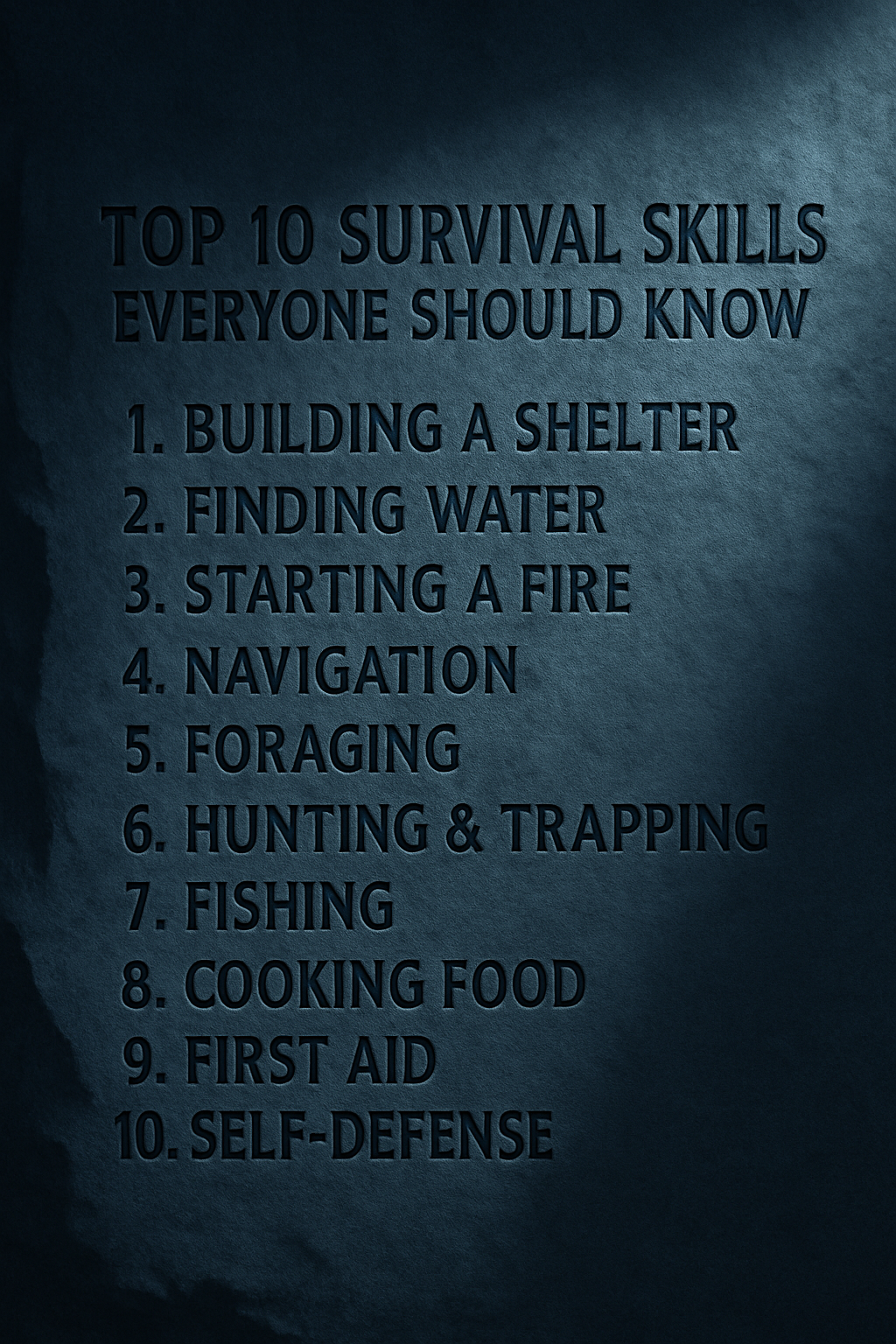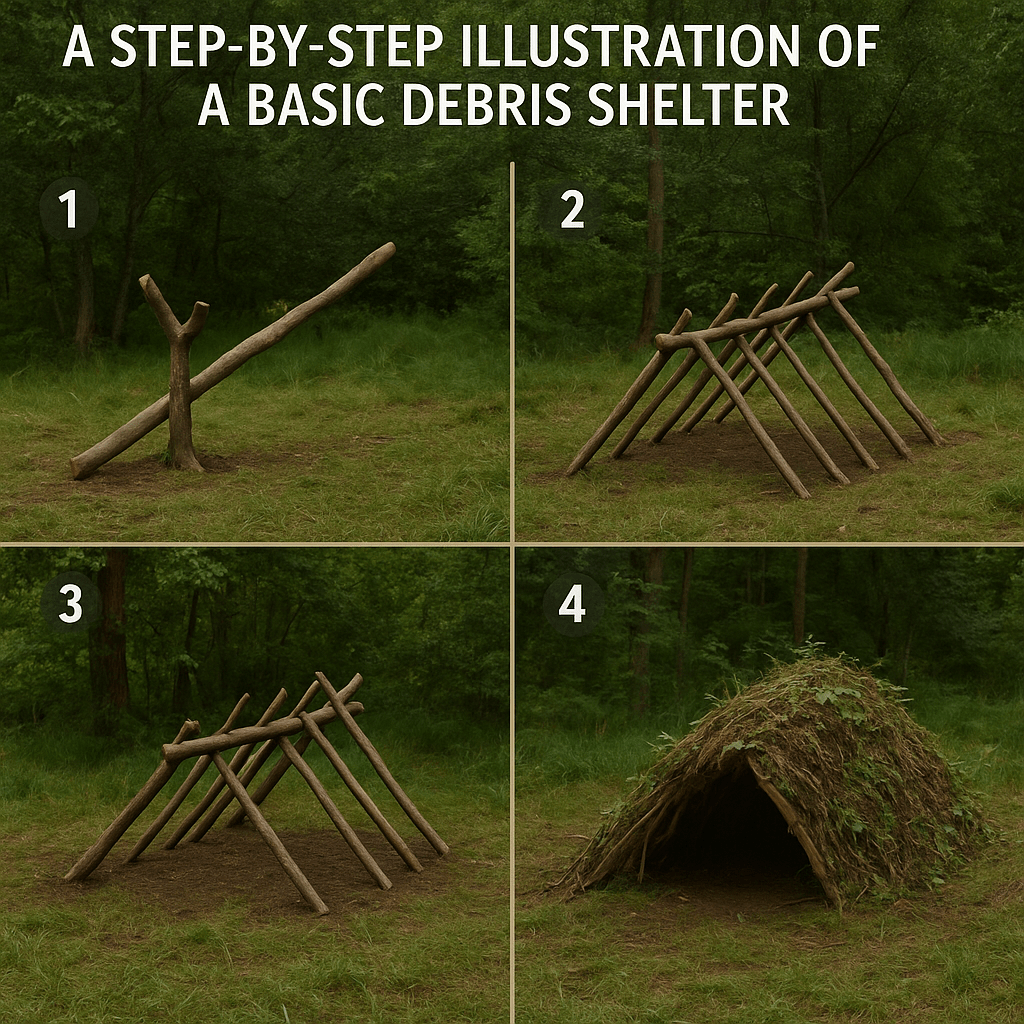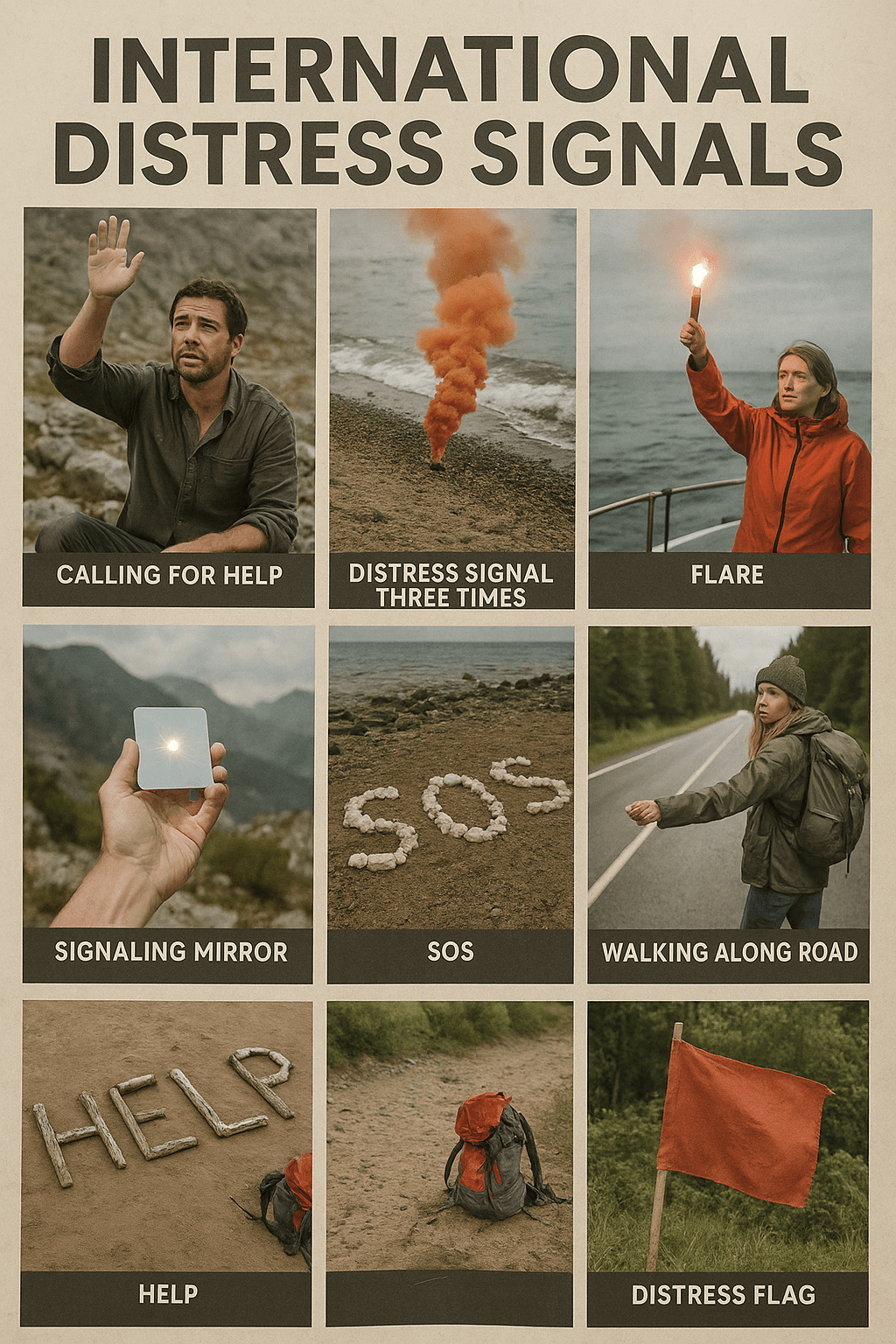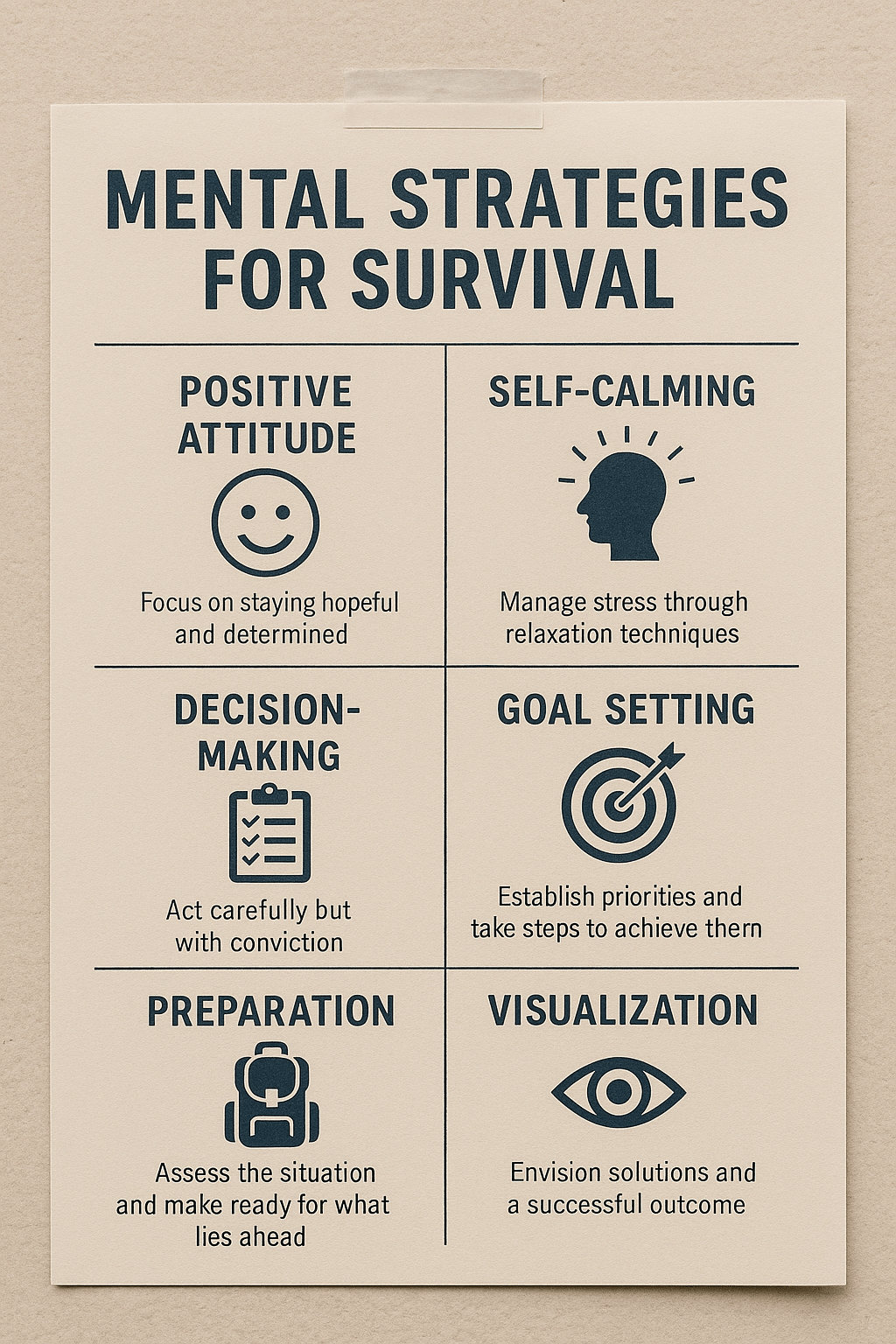Top 10 Survival Skills Everyone Should Know
 In an unpredictable world, knowing the top 10 survival skills everyone should know can mean the difference between life and death. Whether you are a dedicated prepper, an outdoor enthusiast, or someone preparing for potential emergencies, mastering these essential skills ensures you can survive and thrive when the unexpected happens.
In an unpredictable world, knowing the top 10 survival skills everyone should know can mean the difference between life and death. Whether you are a dedicated prepper, an outdoor enthusiast, or someone preparing for potential emergencies, mastering these essential skills ensures you can survive and thrive when the unexpected happens.
This guide covers the fundamental survival skills every individual should learn, practice, and perfect — no matter their experience level.
Why Survival Skills Matter
Disasters strike with little to no warning. Therefore, learning core survival skills isn’t just for adventurers; it’s essential for everyone. Whether facing a natural disaster, getting lost during a hike, or managing a prolonged power outage, the ability to stay calm, resourceful, and prepared is critical.
Mastering the top 10 survival skills everyone should know will dramatically increase your chances of staying safe and helping others during emergencies.
1. Building a Shelter
 Shelter protects you from the elements and is a top priority in survival scenarios. Exposure to extreme temperatures can quickly become life-threatening.
Shelter protects you from the elements and is a top priority in survival scenarios. Exposure to extreme temperatures can quickly become life-threatening.
Key shelter-building basics include:
- Selecting a location: Find dry, elevated ground away from hazards like falling branches or rising water.
- Using available materials: Branches, leaves, tarps, and even debris can be invaluable.
- Insulating: Prevent heat loss by insulating your shelter from the ground and sides.
Related Internal Link: [How to Build a Survival Shelter from Scratch]
2. Finding and Purifying Water
Water is crucial for survival. Without it, dehydration can set in within just 72 hours.
Essential water skills:
- Finding sources: Streams, rivers, rainwater, and morning dew can be lifesavers.
- Purification methods: Boiling, filtration, and chemical purification tablets remove harmful pathogens.
CDC Guidelines for Water Purification (PDF)
3. Starting a Fire
Fire provides warmth, a method to cook food, boil water, and signal for rescue.
Key fire-starting techniques:
- Friction-based methods (bow drill, hand drill)
- Chemical and spark-based methods (ferro rod, matches, lighters)
- Fire safety: Always clear the area around your fire pit and keep water or dirt nearby to extinguish flames if necessary.
Best Fire Starters for Preppers and Campers
4. Basic First Aid
In a survival situation, immediate medical attention isn’t guaranteed. Therefore, basic first aid knowledge is vital.
Learn how to:
- Clean and dress wounds
- Recognize symptoms of hypothermia and heatstroke
- Perform CPR and use a tourniquet when necessary
American Red Cross First Aid Tips (PDF)
5. Signaling for Help
 Getting rescued often depends on your ability to signal. Therefore, every survivalist must know how to attract attention.
Getting rescued often depends on your ability to signal. Therefore, every survivalist must know how to attract attention.
Effective signaling methods:
- Smoke signals
- Mirrors or reflective surfaces
- Emergency whistles
- Creating large ground symbols (e.g., SOS)
6. Navigating Without a Compass
If you’re lost, knowing how to navigate can save your life.
Skills include:
- Using the sun and stars for direction
- Reading natural clues like moss growth or flowing water
- Creating basic maps as you move
How to Navigate Without GPS or a Compass
7. Foraging for Food
While the human body can survive several weeks without food, energy is vital for keeping your strength and morale up.
Foraging essentials:
- Identifying edible plants: Dandelions, cattails, and wild onions are common examples.
- Avoiding poisonous plants: Learn key warning signs, like “leaves of three, let it be.”
- Hunting and trapping basics: Simple snares and fishing techniques can provide protein.
USDA Wild Edible Plants Guide (PDF)
8. Self-Defense Techniques
In survival situations, protecting yourself is sometimes necessary.
Basic self-defense knowledge should cover:
- Awareness: Recognize threats before they escalate.
- Simple defensive moves: Breakaway grips, blocking strikes, and escaping holds.
- Improvised weapons: Everyday items can serve as protection tools.
9. Psychological Resilience
 Maintaining a positive, focused mindset significantly impacts survival chances.
Maintaining a positive, focused mindset significantly impacts survival chances.
To boost mental resilience:
- Set small goals: Focus on immediate needs, like building a fire.
- Stay positive: Visualize success to maintain hope.
- Manage stress: Deep breathing techniques help regulate emotions.
10. Tool and Gear Maintenance
Survival tools are only effective if maintained properly.
Tips include:
- Regularly sharpen knives and axes
- Check gear for wear and tear
- Practice with your tools before needing them in a real emergency
Top 10 Must-Have Survival Tools and How to Maintain Them
Quick Reference: 10 Survival Skills Checklist
Here’s a quick bullet-point checklist you can save:
- Build a shelter
- Find and purify water
- Start and maintain a fire
- Administer basic first aid
- Signal for help effectively
- Navigate naturally
- Forage safely
- Defend yourself
- Stay mentally resilient
- Maintain tools and gear
Final Thoughts on Mastering the Top 10 Survival Skills Everyone Should Know
Knowing these top 10 survival skills everyone should know empowers you to face any emergency with confidence. Start practicing these skills now — survival isn’t something you can learn in a moment of crisis.